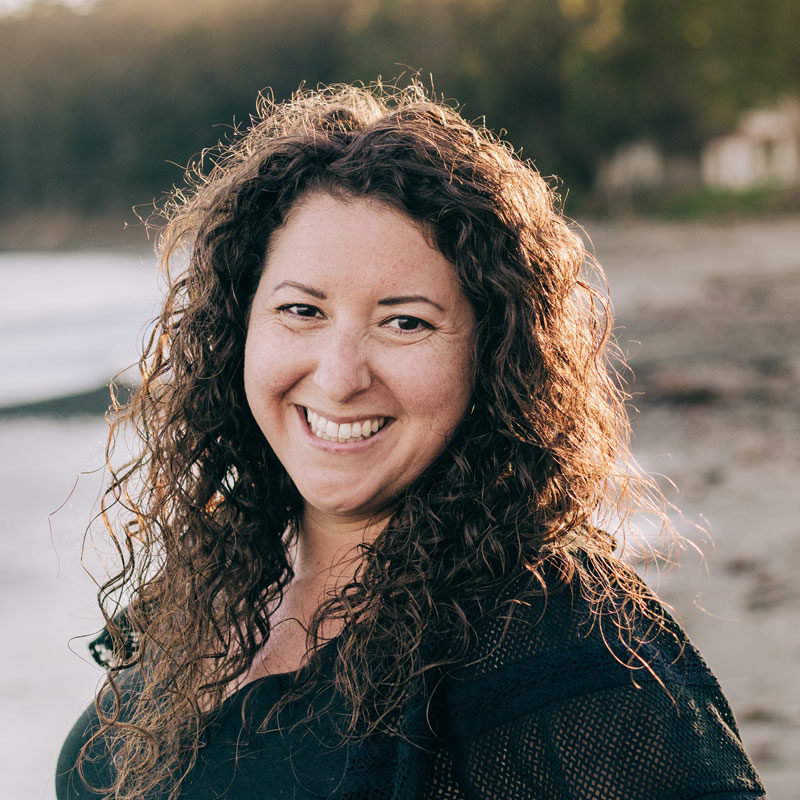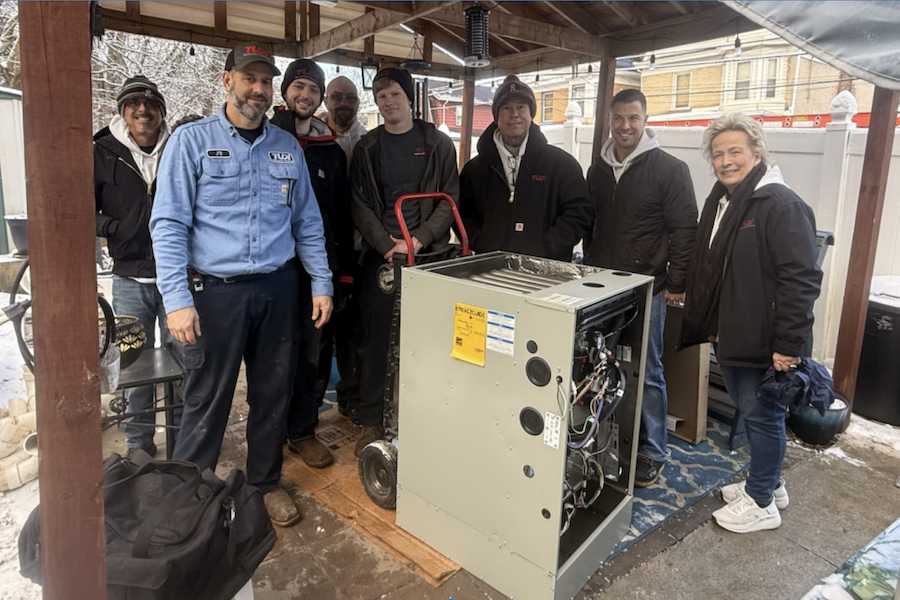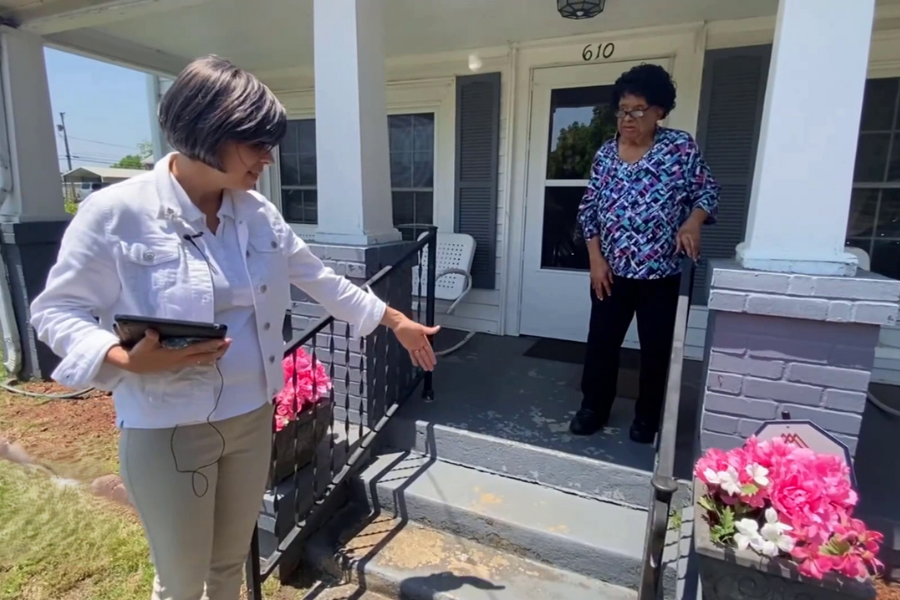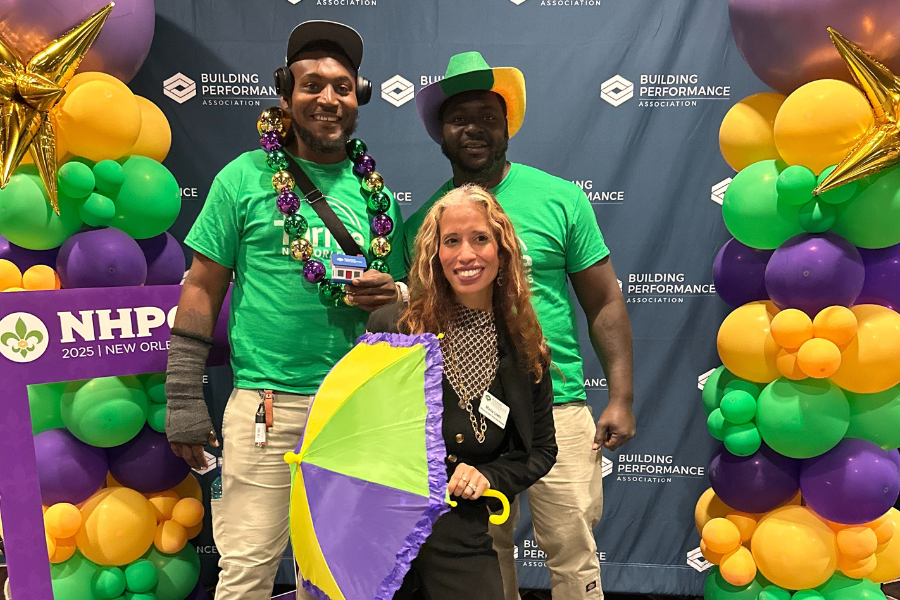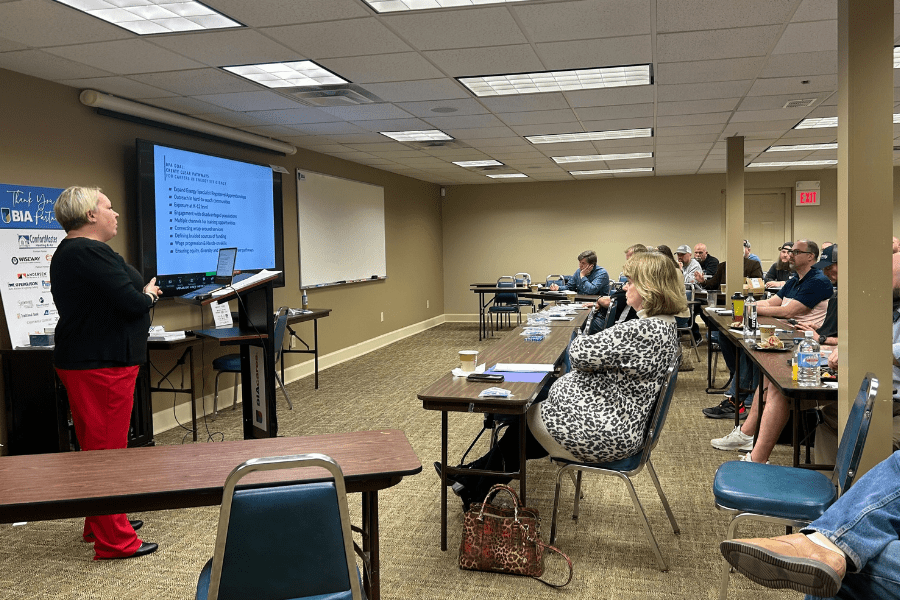Jun 13, 2024
Meet Jill Balaster, a Woman Channeling Her Strength
Jill Balaster has learned quickly to channel her strength as a woman and her passion for the industry. Here are her accomplishments, advice, and what's next.
By: Macie Melendez

Jill Balaster is the Director of Operations & Communications for the Arkansas Advanced Energy Association. Her background is not in the industry at all; in fact, prior to entering her current role, she spent 11 years teaching English as a second language at Arkansas Tech University.
It was her friend who started a solar development company that introduced her to a job in energy efficiency. “I learned a lot quickly and, in a short time, was running the solar company while my friend, the CEO, started working on other things,” said Balaster. Balaster spent a lot of time developing and improving operations, and learned that she was both good at this new role and also really enjoyed it.
In the spring of 2023, she began looking for other opportunities in which she could leverage her skills and make a meaningful impact. This led her to the Arkansas Advanced Energy Association. “This is where I found the perfect intersection of my passion for progressing towards clean energy alternatives and my expertise in developing and implementing new and improved organizational operations.” Balaster says the transition has been both challenging and rewarding.
“I am excited about the continuous learning and growth opportunities that this role and organization offers, and thankful for those who saw potential in me, regardless of my non-traditional path to this industry,” she said.
We always love to hear from members of the industry, both new and seasoned, so we took the opportunity to speak with Balaster about her accomplishments, advice, and what’s next.
Q&A with Jill Balaster
Q: What were some big accomplishments for you professionally in 2023?
A: In 2023, I achieved significant milestones that highlighted my strategic and operational capabilities. One of my major accomplishments was spearheading the development of a comprehensive business plan for my former company. Despite the company’s established history, the original plan was limited. Collaborating with a colleague, we transformed it from a half-page document into a detailed 50-plus-page blueprint, providing a robust foundation for future growth.
Another noteworthy achievement was successfully navigating my former company through a challenging phase of restructuring. I played a pivotal role in ensuring a seamless transition, and the business emerged stronger and more resilient on the other side of this transformation.
Moreover, securing the position of Director of Operations & Communications at the Arkansas Advanced Energy Association and Foundation marked a pivotal moment in my career. This opportunity allows me to leverage the skills honed in my previous role to advance not only solar and energy efficiency but also contribute to the progress of all sectors within advanced energy. Collaborating with diverse stakeholders, I am dedicated to creating meaningful partnerships that generate a positive impact and drive the advancement of sustainable energy practices.
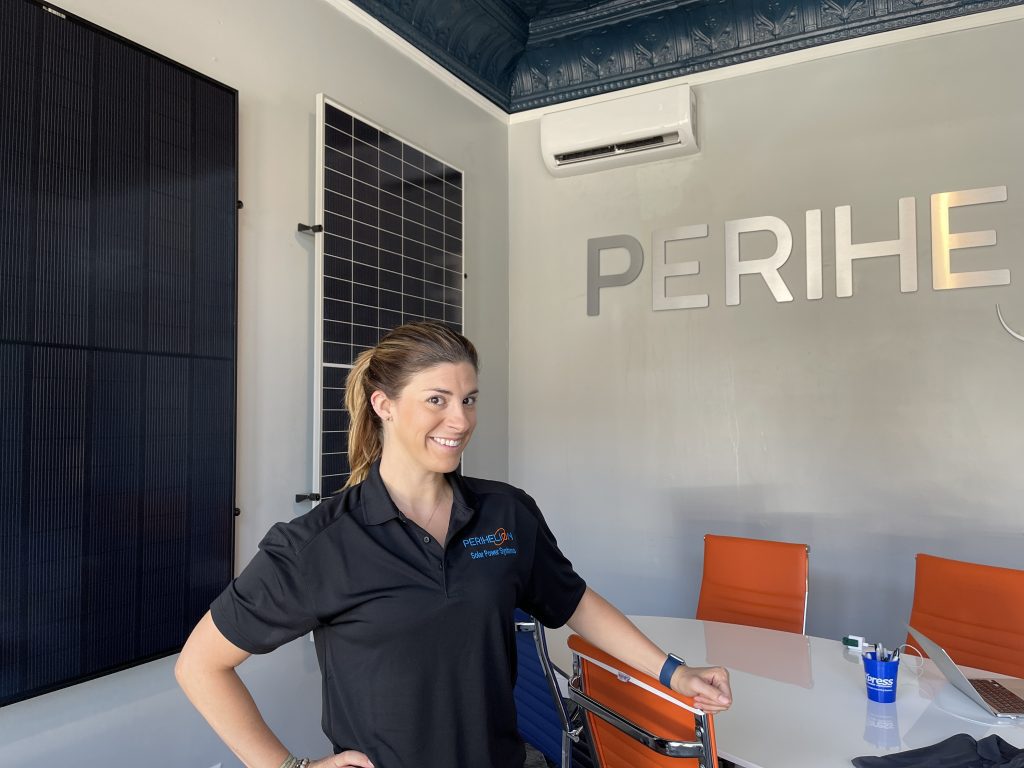
Q: In terms of workforce development, what is one key thing you think organizations in the industry need to be doing to bring in more diversity?
A: To enhance workforce diversity, organizations should prioritize accessibility, which they can start doing by collaborating with educational institutions and community organizations. Mentorship programs, developed in partnership with local schools and community organizations, pave the way for underrepresented groups to explore careers in energy efficiency. Arkansas Advanced Energy Foundation, also known as AAEF, has demonstrated commitment through partnerships with Apprenticely and others, contributing to the creation of a diverse talent pipeline.
Building relationships with diversity-focused organizations is crucial. Partnering with professional associations dedicated to women/nonbinary/femme-presenting and black and indigenous people of color in STEM fields enhances the identification and recruitment of diverse candidates. This collaborative approach strengthens the industry’s commitment to inclusivity.
Additionally, organizations can eliminate barriers by offering skills training and development programs in collaboration with community colleges or trade schools. AAEF’s existing collaborations align with this strategy, facilitating a more accessible entry into the industry for underrepresented individuals. In the hiring process, conducting audits to identify and remove potential biases ensures inclusivity, contributing to a fair and equitable selection process.
Creating an inclusive company culture is paramount. Organizations should offer unconscious bias training, implement inclusive policies and benefits, and establish employee resource groups for underrepresented communities. These initiatives foster a workplace that values diversity and promotes equity.
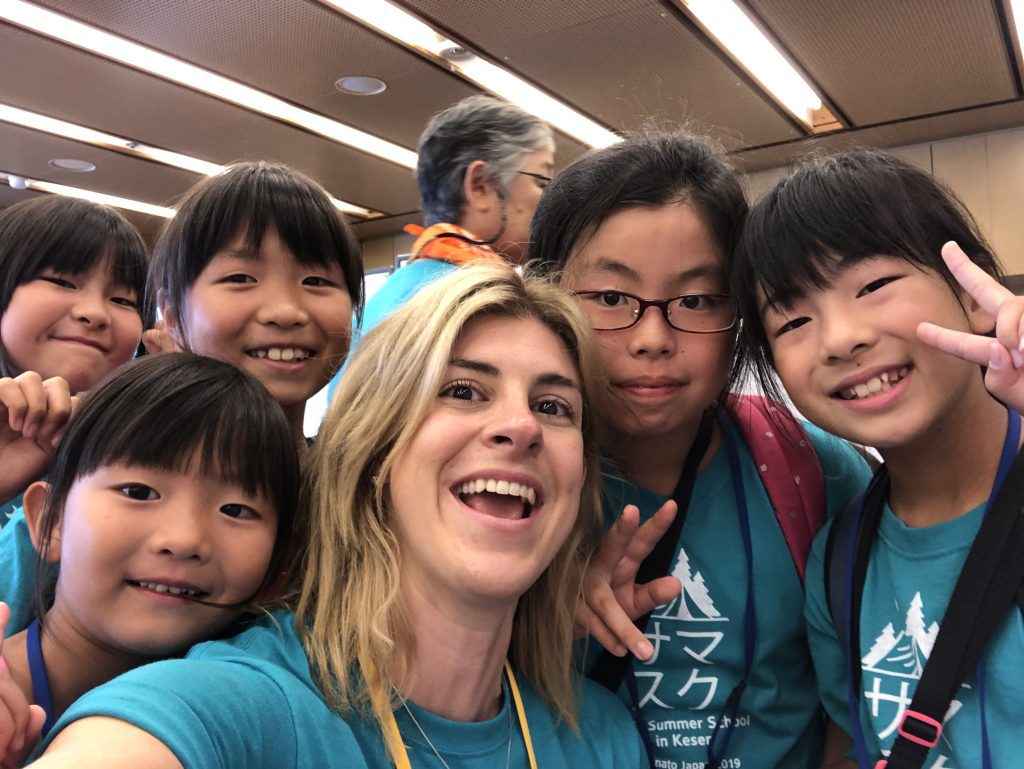
Q: What do you think women bring to the table that helps this industry move forward and grow?
A: Women bring a diverse perspective and unique skill set to the industry, contributing to a more well-rounded and innovative workforce. Studies have shown that diverse teams lead to better decision-making and problem-solving. Women often excel in collaboration, communication, and multitasking. These qualities are crucial in the dynamic and fast-paced environment of the energy efficiency industry.
Embracing gender diversity not only promotes equality but also enhances the industry’s ability to address complex challenges. Moreover, women’s perspectives and ideas can drive innovation, offering new insights that lead to more customer-centric products and services.
Q: What advice would you give to other women just starting out in the energy efficiency industry?
A: I would encourage them not to hesitate in exploring spaces where they may feel unsure or unskilled initially. In my experience, stepping into the unknown has been a catalyst for personal and professional growth. They should trust in their ability to learn and adapt. The skills and experience will follow as they navigate the challenges. It’s crucial to cultivate confidence in themselves and recognize that every new experience is an opportunity to expand their skill sets. Don’t be afraid to ask questions.
Additionally, building a supportive community is key. Seek out and connect with other women, nonbinary individuals, and femme-presenting colleagues in the industry. Creating this network not only provides valuable insights and mentorship but also fosters a sense of belonging. Together, we can share experiences, navigate challenges, and celebrate successes. Being a woman in this field is a strength, and finding solidarity with others will empower them throughout their journey.
I’d say, remember, your unique perspective and contributions matter. Embrace the learning curve, foster self-assurance, and connect with your peers—you’re not alone in this exciting and dynamic industry.
Q: What advice would you give to women who have been in the industry for years?
A: For seasoned women in the industry, I would emphasize the importance of mentorship and paying it forward. Share your knowledge and experiences with younger professionals, especially women, to help them navigate their careers. I can say with utmost respect and confidence that April Ambrose has been that person for me. She is an incredibly intelligent and experienced leader within the industry, and she took me under her wing as I was trying to find my footing this past summer.
Continue to invest in your own professional development, stay updated on industry trends, and consider taking on leadership roles. Your wealth of experience positions you as a valuable asset, and your leadership can inspire the next generation of women in the energy efficiency sector.
Furthermore, actively engage in creating a supportive network for women in leadership positions. Collaborate with industry associations and organizations to establish forums or mentorship programs that facilitate the exchange of insights and experiences among seasoned professionals. By fostering a culture of mentorship and collaboration, we can collectively contribute to the empowerment and advancement of women in the energy efficiency industry.
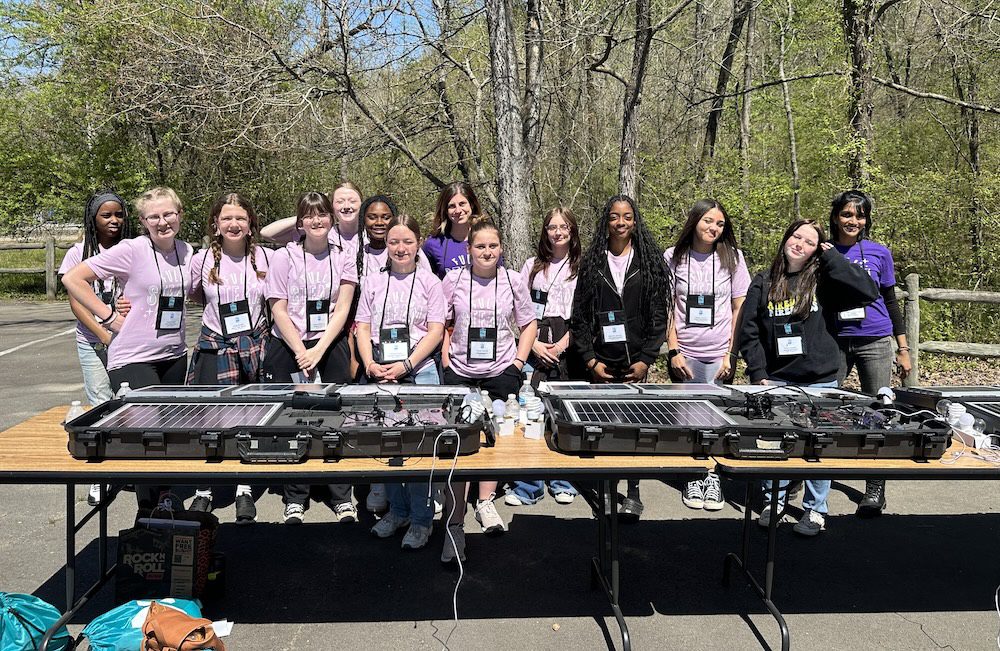
Q: What are your big goals for 2024?
A: My big professional goals for 2024 encompass a strategic focus on enhancing organizational efficiency and fostering growth. Two key objectives include developing robust task tracking and project management systems to streamline workflows and elevate team efficiency. By implementing these systems, we aim to enhance collaboration and ensure that our initiatives are executed with precision and effectiveness.
Simultaneously, I am committed to driving substantial growth for our organization by increasing membership by 50%. This ambitious goal aligns with our broader mission and signifies our dedication to expanding our reach and impact within the advanced energy sector.


